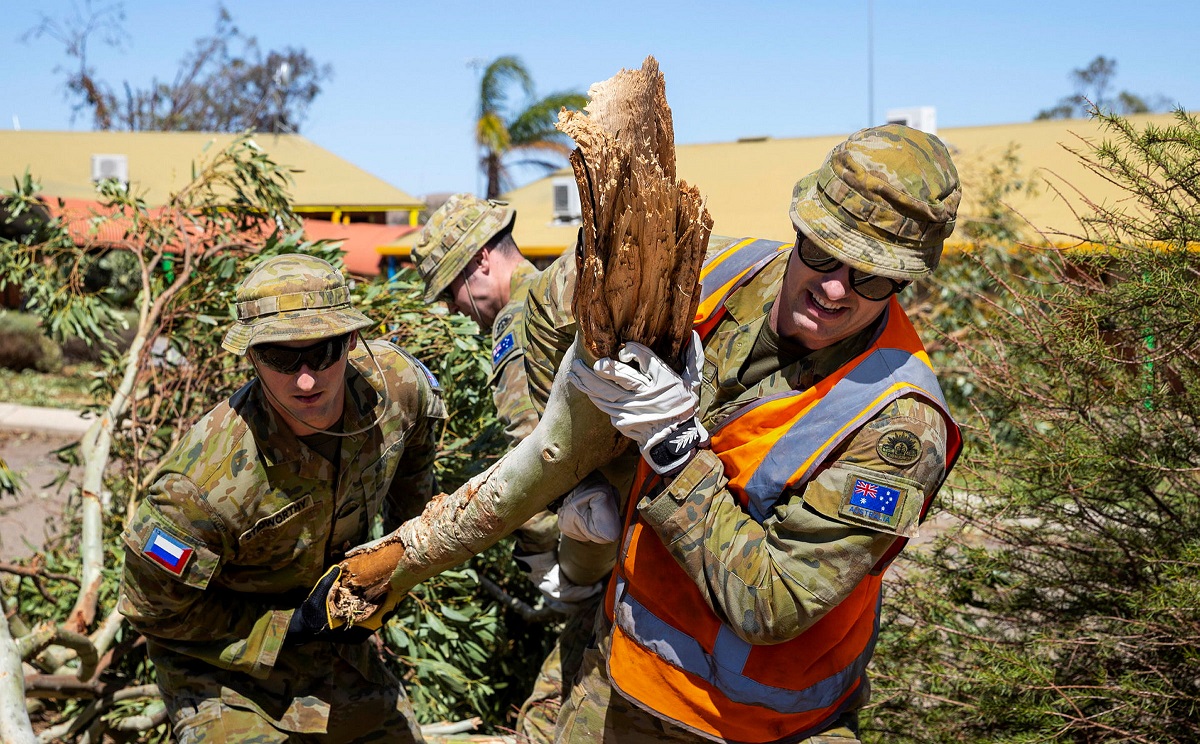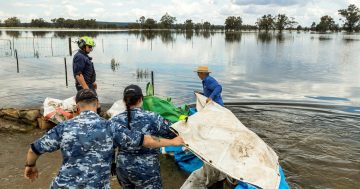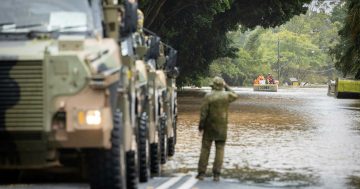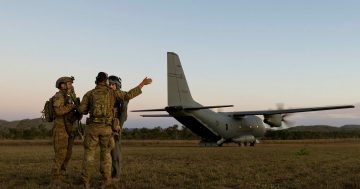
An inquiry has found the ADF’s responses to multiple natural disasters in recent years has affected Defence capability. Photo: ADF.
A parliamentary inquiry has found the recent need for Defence to respond to natural disasters is unsustainable and its failure to meet recruitment and retention targets concerning.
The findings were highlighted in the Joint Standing Committee on Foreign Affairs, Defence and Trade Defence Subcommittee’s inquiry into the Department of Defence Annual Report 2021-22.
The inquiry was initiated in November 2022 and published on 14 September. It focussed on issues including Defence workforce recruiting and retention, Defence support to domestic crises, Space Command and capability.
Defence subcommittee chair Julian Hill said the committee had found the “near-persistent” requirement for Defence to respond to domestic crises was unsustainable and had created concurrency pressures that would soon degrade the Australian Defence Force (ADF)’s warfighting capabilities.
“Over 50 per cent of Defence members have been assigned to domestic disaster relief tasks in recent years,” Mr Hill wrote in the report’s foreword.
“The near-persistent requirement for Defence to respond to domestic crises is unsustainable, and creates unacceptable concurrency pressures that will soon degrade the ADF’s warfighting capability.”
Mr Hill said the climate was changing, and state and territory governments needed to “lift their collective game” to build resilience and adequately resource natural disaster responses.
“The ADF cannot continue to be seen as some sort of ‘shadow workforce’, especially in circumstances where certain states or territories have not adequately resourced and increased their own capabilities, and community resilience and responses,” he said.
In addressing recruitment and retention, the committee said Australia’s changing strategic circumstances meant Defence needed to grow its workforce in order to “effectively respond across all warfighting domains”.
But the inquiry found Defence’s overall numbers had dropped by 900 personnel during the period of the annual report, and that 42 Defence workforce categories were classified as critical, including a high proportion of STEM trades.
“The concurrency pressures that Defence experienced during COVID-19 pandemic and natural disaster relief-related activities may be a contributing factor towards job dissatisfaction for some, but was not a defining reason for separation,” Mr Hill said.
“Plainly speaking, the overriding issue is the strength of the Australian economy and labour market: Defence recruits well in a recession and badly in a boom. While it is difficult to address in the current strong labour market, the slide in the ADF’s numbers and growth in critical skills shortage areas must not continue.”
The committee also recognised the emerging space and cyber operational domains were as important as the traditional land, sea and air domains.
It welcomed the recent transition of Space Command from Air Force to Joint Capabilities Group, but felt its role was too broad, and “would benefit from a revised and more considered and focussed mission statement”.
“Australia is heavily reliant on other nations for Defence-related space capabilities and must continue to build its own sovereign capabilities while recognising there will be an ongoing interdependence with allied and partner nations,” Mr Hill said.
“As Space Command matures, Defence could also better leverage and develop Australian industry capability by more clearly articulating its planning and capability requirements to trusted industry partners, harnessing their willingness to invest and develop new technologies.”
Some of the issues highlighted by the committee are already being addressed by the Federal Government.
In August, the Government announced that, in response to the Defence Strategic Review (DSR) published in April, it had launched the Alternative Commonwealth Capabilities for Crisis Response consultation paper seeking alternative options on how best to handle future national disaster responses. The DSR had highlighted that Defence was currently under-manned and under-equipped.
In launching the consultation paper on 12 August, Minister for Emergency Management Murray Watt said it hoped the responses to it would help inform the Department of Home Affairs and National Emergency Management Agency (NEMA) on how to develop future policies on providing disaster recovery assistance to states and territories.
Defence’s recruitment and retention issues were another area highlighted in the DSR, and which the Government has taken some initial steps to address.
In May this year, the Government implemented a series of retention bonuses to take effect from 2024 and said it would review its defence housing policy. In June it appointed a 3-star officer – Lieutenant general Natasha Fox – as the Chief of Defence Personnel and, in July embarked on a new recruitment strategy and partnership with Adecco Australia.





















